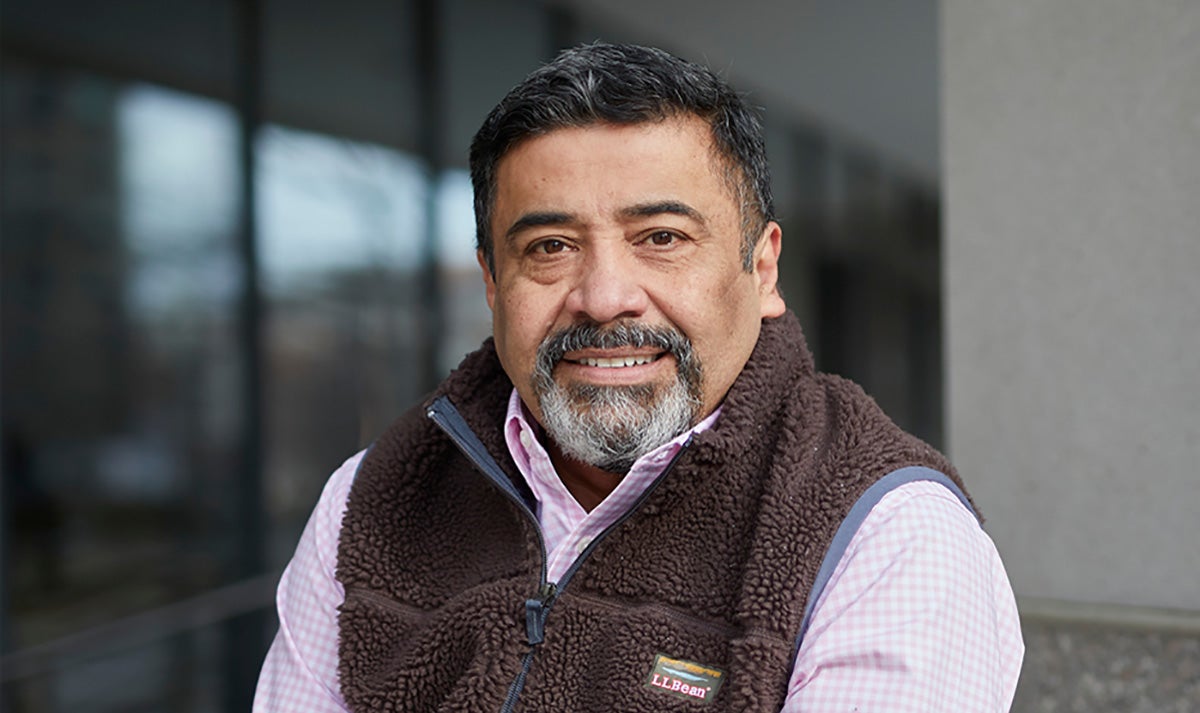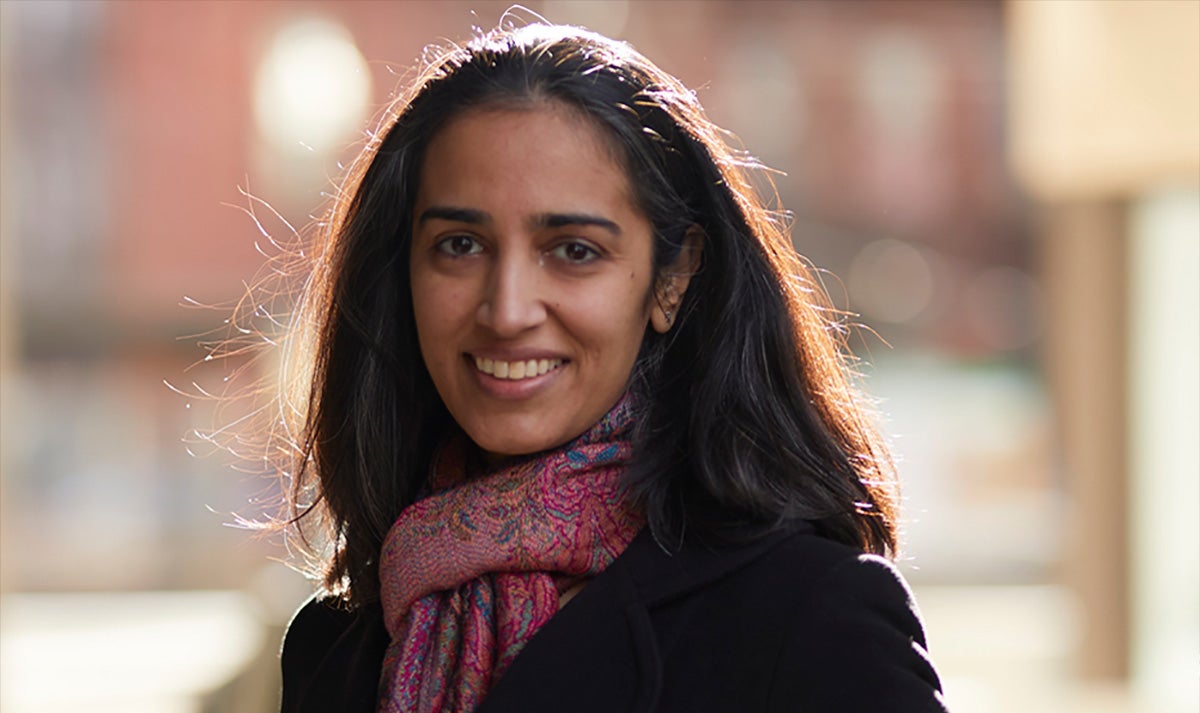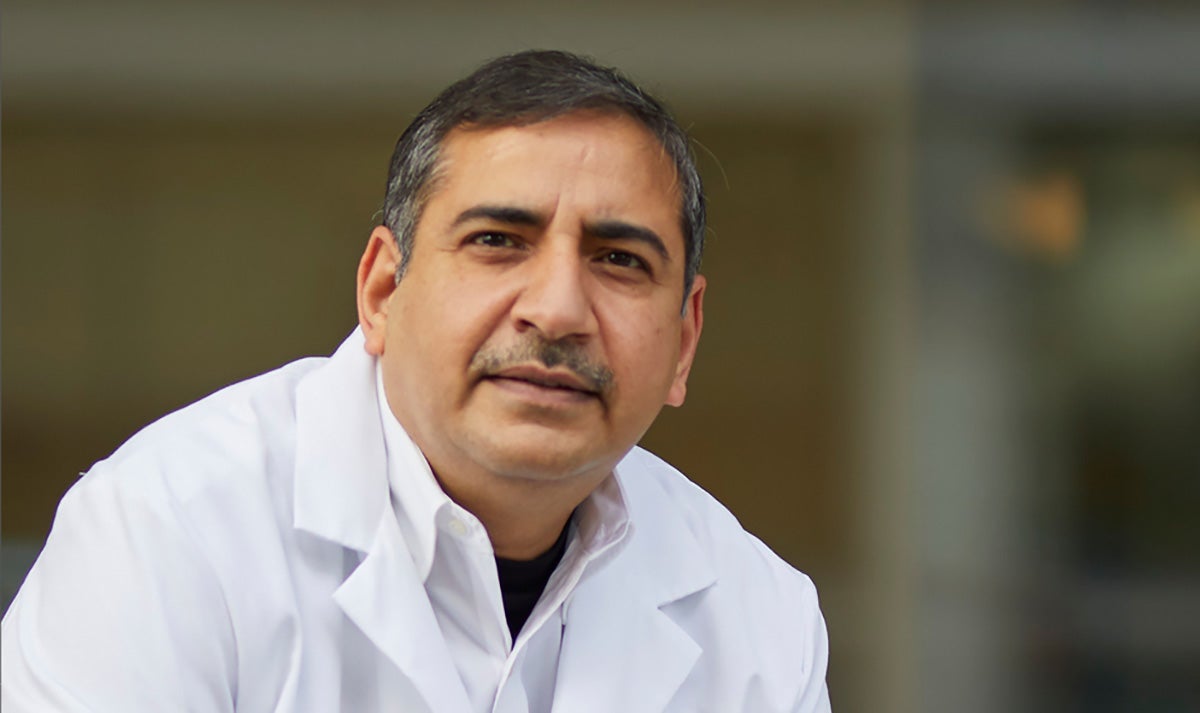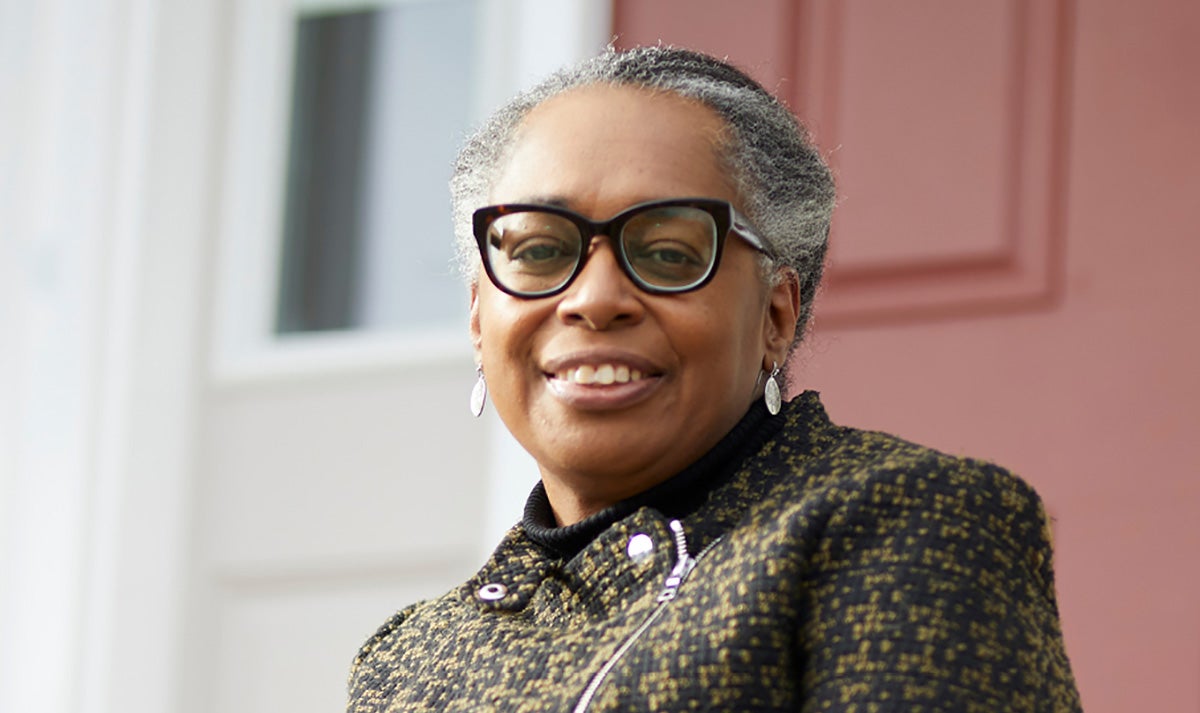Dedicated staff are keeping the School running during the COVID-19 shutdown.
In March 2020, Harvard T.H. Chan School of Public Health shut down most operations on campus and began holding classes remotely. Here are just a few of the staff members who have been keeping the campus safe, its labs running, and its students connected.
Raul Andino
Associate Manager, Custodial Services
 Raul Andino is proud of how quickly the School’s 20 custodians adapted to the new normal of eight-hour shifts in masks, solo lunch breaks, and enhanced cleaning procedures. To further minimize their exposure to the coronavirus, the custodians were divided into two morning and two evening teams, with each team coming to work on alternating weeks. Much of their time is spent on treks around the School’s hallways, hitting high-touch areas like elevator buttons and doorknobs with an electrostatic sprayer attached to a backpack that quickly releases a fine mist of a safe and environmentally friendly disinfectant.
Raul Andino is proud of how quickly the School’s 20 custodians adapted to the new normal of eight-hour shifts in masks, solo lunch breaks, and enhanced cleaning procedures. To further minimize their exposure to the coronavirus, the custodians were divided into two morning and two evening teams, with each team coming to work on alternating weeks. Much of their time is spent on treks around the School’s hallways, hitting high-touch areas like elevator buttons and doorknobs with an electrostatic sprayer attached to a backpack that quickly releases a fine mist of a safe and environmentally friendly disinfectant.
Like Andino, most of these workers commute on public transportation each day. It can be stressful, he says, especially when trains are crowded and people don’t wear masks. “But from the beginning,” he notes, “my team never hesitated to say that they would come into work. To me, they are heroes.”
Andino and his crew are looking forward to the day when Kresge Cafeteria will once again be full of activity and animated conversations. Until then, he says, “We keep an eye on everybody. We have to take care of each other.” Read more
Sejal Vashi
Manager of Digital Learning
 When the School moved to remote learning, the Department of Information Technology had the daunting task of shepherding some 180 classes into a new online form in just weeks—a process that usually takes nearly nine months per course. A key part of this task was getting faculty quickly up to speed by increasing the availability of trainings from just five a month to once a day.
When the School moved to remote learning, the Department of Information Technology had the daunting task of shepherding some 180 classes into a new online form in just weeks—a process that usually takes nearly nine months per course. A key part of this task was getting faculty quickly up to speed by increasing the availability of trainings from just five a month to once a day.
“What we offered was just enough to get faculty started and to know there’s a team here to help if they have questions,” says Sejal Vashi.
The transition went smoothly for the most part, Vashi says, although there were some challenges as faculty who were new to virtual teaching got used to more complex features such as using a Zoom whiteboard or hosting an online discussion.
On the plus side, conducting classes online has led faculty members “to take a deeper look at their courses in ways they didn’t have to before,” Vashi says. “For example, they might produce a video of a guest speaker who can’t visit campus. Or they might create a video that teaches a tricky concept, so that students can rewind and pause.” Read more
Noman Siddiqi
Senior Lab Director, Department of Immunology and Infectious Diseases
 A lab is a little like a giant cruise ship. Its multiple moving parts can’t just be shut off with the flick of a switch—tuberculosis specimens must be safely stored, breeding mosquito colonies fed, subzero freezers kept running.
A lab is a little like a giant cruise ship. Its multiple moving parts can’t just be shut off with the flick of a switch—tuberculosis specimens must be safely stored, breeding mosquito colonies fed, subzero freezers kept running.
This spring, while the School was shut down for all but a few essential lab workers, Noman Siddiqi did a weekly walk-through of his department’s labs, ensuring that electrical power was on and expensive equipment still functional. It was a strange experience, he says. “You don’t notice how much background noise there usually is. Then suddenly it’s so quiet.”
Siddiqi was part of the School’s research planning committee, which, while it awaited guidance from city and state authorities, developed plans to safely reopen the labs. They were able to open in June with 25 percent of their workforce, expanding to 50 percent later in the summer. Researchers were assigned to a cohort with either a morning or evening shift to minimize the number of people who would need to be quarantined if someone got sick.
“With the guidance and protocols we put in place, we wanted to assure people that we really care about their safety,” Siddiqi says. Read more
Robin Glover
Associate Dean for Student Services
 Much of the work in the units that fall under the Office for Student Services has always been driven by in-person interaction. But when the School transitioned to remote instruction, staff had to quickly figure out how to retool their programs for the new virtual normal.
Much of the work in the units that fall under the Office for Student Services has always been driven by in-person interaction. But when the School transitioned to remote instruction, staff had to quickly figure out how to retool their programs for the new virtual normal.
While nothing beats the warmth of personal connection, Robin Glover says that Student Services has worked hard to find the best platforms for student engagement.
For example, at this fall’s virtual career expo—which offered private breakout rooms for chats—students were able to meet with employers who wouldn’t have been able to travel to the School. Similarly, representatives from the Office of Admissions were able to meet with a more geographically diverse pool of students.
Building on these successes, Glover hopes to hold both in-person and online events in the future. More challenging was the online Commencement ceremony—which her team and the IT and Communications teams pulled together in just eight weeks.
Glover says that she’s been continually impressed by the level of commitment her team puts into serving students during the pandemic, adding, “It’s great to see that they still have smiles on their faces.”







